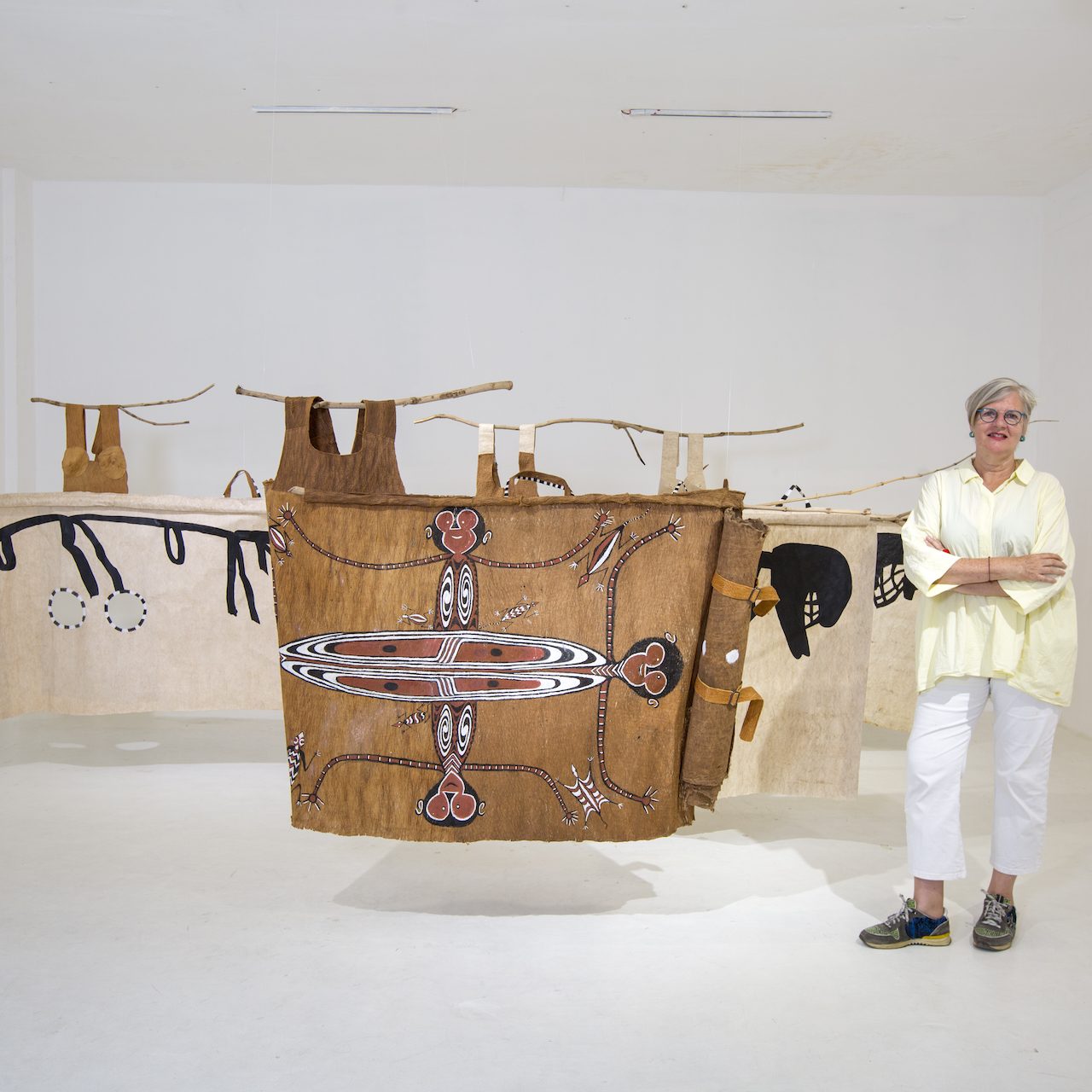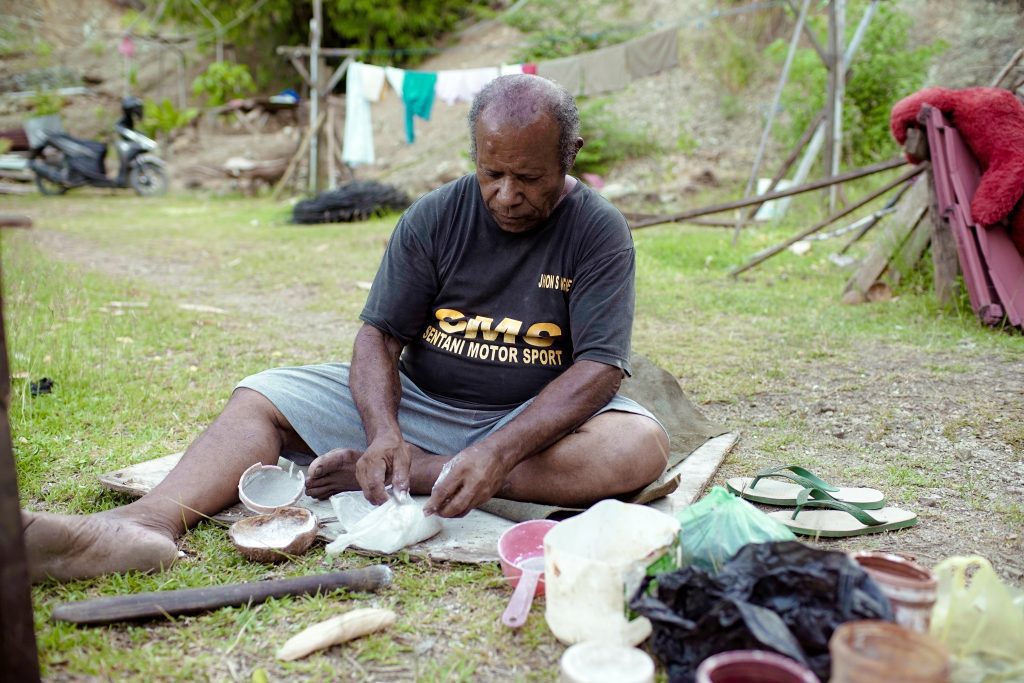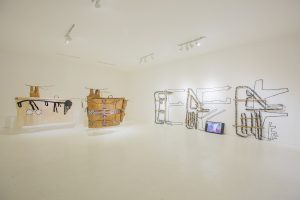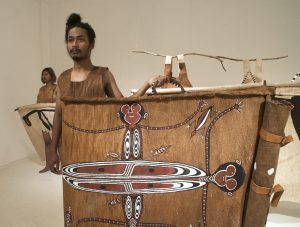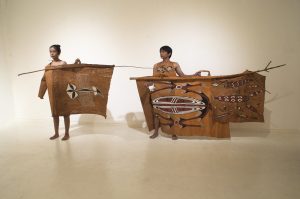Mella Jaarsma & Agus Ongge
(Netherland-Yogyakarta/Indonesia-Sentani)
Mella Jaarsma (b. 1960, Emmeloord, Netherlands) live in Yogyakarta since 1984, co-founder of Cemeti Art House -now called Cemeti Institute for Art & Society- one of the first spaces for contemporary art in Indonesia, which to this day remains an important platform for young artists and art workers in the country and region. She studied visual art at Minerva Academy in Groningen, Art Institute of Jakarta and Indonesian Institute of the Arts in Yogyakarta.
Mella known with her complex costume installation and focused on the diversity of culture which reflected on their clothes, body and food. Her works have been presented widely in exhibitions and art events in Indonesia and abroad, including: ‘Dunia Dalam Berita’, Macan Museum, Jakarta (2019); The Setouchi Triennale, Japan (2019), the Thailand Biennale (2018); the 20th Sydney Biennale (2016); ‘The Roving Eye’, Arter, Istanbul(2014); ‘Siasat – Jakarta Biennale’, Museum of Ceramics and Fine Arts, Jakarta (2013); ‘Suspended Histories’, Museum Van Loon, Amsterdam (2013); ‘Singapore Biennale’, Singapore Art Museum (2011); Yokohama Triennial (2005), and many others. Her work is part of the collection of the Queensland Art Gallery, Brisbane, National Gallery of Australia and the Singapore Art Museum, amongst others.
Agustinus Ongge (b. 1954, Asei Island, Sentani) is an artist working with tree bark since 1981. The present of modern clothing, make the bark cloth craftsmanship on the edge of extinction, so his work then aiming to pass down the indigenous craftsmanship “khombow” to younger generation. His work has been exhibited both nationally and internationally.
“At First There’s Black” (2021)
Costume installation – barkcloth and mixed media, sound, performance, video
Variable size
Not only covering the body and expressing one’s personal identity, clothing is also related to and reflects social and power structures, traditions, ethnicities, religions, ecology, and geographical conditions. During the new order, the government once held Operasi Koteka in 1971–1972, with the aim of eliminating the use of koteka (male genital coverings) among the Papuan people and replacing them with pants and clothes that were considered more “modern”. These forms of repression under the pretext of modernity have eliminated local knowledge, including the knowledge on processing and designing bark as part of the local’s material culture.
Many indigenous communities began initiating movements to reclaim their possessions that had been acquired by external parties, not only cultural material objects but also knowledge. One of the artists and practitioners who is actively engaged in this fight is Agus Ongge, coming from Sentani, Papua. Mella Jaarsma and Agus Ongge foster a collaboration involving bark which is commonly used as clothing material in the culture of several tribes in Papua. The collaboration ignited many conversations, about the urgency to win back the disappearing knowledge and about the vague tension between contemporary art and tradition—categorizations that might be no longer relevant, particularly in the context of indigenous people.

